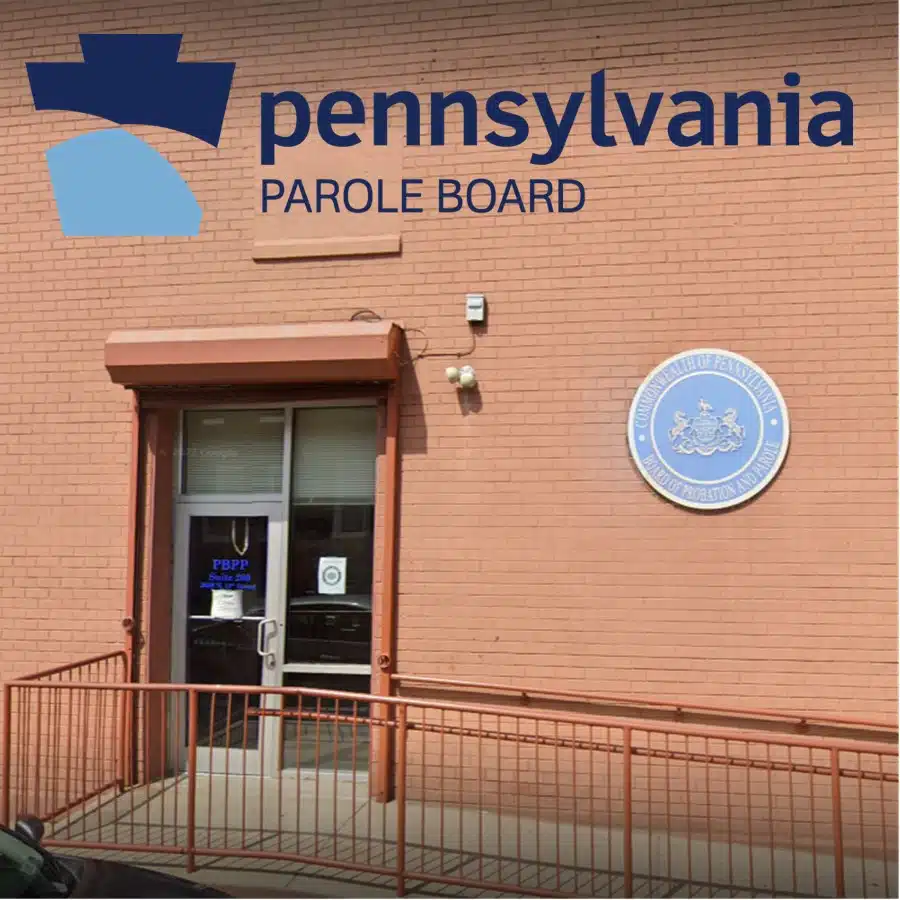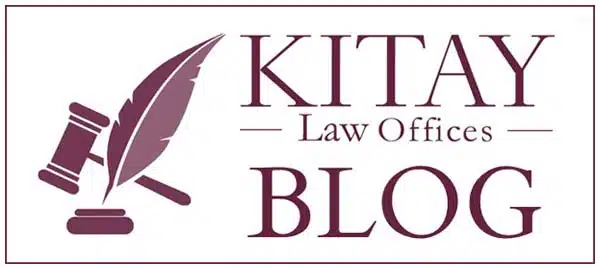Probation and Parole Violations in Pennsylvania can Limit your Freedom
Probation and parole violations in Pennsylvania can result in serious consequences. Therefore, it is important to understand what the two programs are and how violations may impact your rights.
Generally, probation is a period of time when a person who has been convicted of a crime avoids jail or prison on the condition that they follow certain rules during their probationary period. Parole is similar to probation, but it can be granted to people already serving a sentence.
If you have violated the terms of your probation or parole, you may face various ramifications. Importantly, these could include a return to jail, additional fines, and further restrictions placed on where you may live and work. In this article, we will explain the probation and parole programs in Pennsylvania. We will also describe what may happen after a probation or parole violation in PA.
What is the difference between probation and parole in Pennsylvania?

Pennsylvania Board of Probation And Parole is located at 2630 N 13th St #100, Philadelphia, PA 19133
People often confuse probation and parole in Pennsylvania. While both serve to shorten the amount of jail or prison time you could other wise serve, they are very different programs. Let’s explore their differences.
PA Parole Definition
Parole allows someone convicted of a crime to get released from jail or prison early. After being released, they will serve the rest of their sentence outside of the jail or prison. Importantly, they are still serving their sentence, just not physically in jail.
In Pennsylvania, criminal convictions often come with a sentence that has both a minimum and maximum. Parole will occur after you have served the minimum time on the sentence. Before that date, you will come up for review to determine whether you are eligible for parole.
This review typically occurs at least 4 months prior to completing the minimum sentence. Importantly, however, this is not possible if you are serving a life sentence.
PA Probation Definition
Most often, probation is a method of avoiding jail time altogether. In exchange, you agree to abide by rules and restrictions. For example, some of these may include:
- Avoid additional arrests
- No new criminal charges
- Drug testing
- Alcohol treatment program
These programs are heavily influenced by the Pennsylvania Commission on Crime and Delinquency. This group works to build and improve collaboration between the general public and the criminal justice system in PA.
Importantly, probation and parole violations in Pennsylvania can carry serious consequences. We will explore those further below.
Types of probation programs in PA
Interestingly, PA probation rules come in many forms. Depending on the circumstances, you may be eligible for one or more probation programs in Pennsylvania. Each one is unique.
Community Control
Community Control is the most strict probation program in Pennsylvania. While it does allow you to serve your prison sentence outside of a correctional facility, the restrictions are very tight. For example, this program includes:
- 24/7 monitoring
- GPS tracking device
- House arrest
As you can see, the Community Control probation program places significant limits on your freedom of movement.
Intensive Supervision Program
The Intensive Supervision Program also includes significant restrictions. While this program does not require you to stay confined in your home, you must follow very specific requirements. Some of these include:
- Drug testing
- At least 8-12 meetings per month with your probation officer.
- Your probation officer may contact you either in-person or by phone 24/7, any day
Shock Probation
Shock Probation is a very interesting program. The goal is to “shock” the probationer such that they are more likely to comply with the terms of their probation.
Typically, Shock Probation includes a short period of time in jail or prison, followed by another form of probation with various rules. Most often, the jail time is limited to approximately 30 days. Once out, violation of your PA probation rules could result in returning to jail or prison.
Supervised Probation
When under Supervised Probation, you must report directly to a probation officer. In conjunction with your direct reporting, requirements often include:
- Drug testing
- Counseling
- Paying restitution to the victim
- Performing community service
- Finding and maintaining steady employment
Supervised Probation, therefore, is much less restrictive than Community Control or the Intensive Supervision Program. This can be a good balance in conditions of supervision in many situations.
Unsupervised Probation
As the name suggests, Unsupervised Probation means you are not being directly supervised by a probation officer. This is the least restrictive form of probation in Pennsylvania.
However, you can still face consequences for a probation violation in Pennsylvania. For example, you may be changed to Supervised Probation or even have probation completely revoked.
As Unsupervised Probation allows for a significant amount of daily freedom, it is typically reserved for those convicted of very minor offenses. It is also sometimes referred to as “Informal Probation.”
What is the difference between county and state criminal sentences in Pennsylvania?
Frequently, we hear discussions about “county time” versus “state time.” In Pennsylvania, these terms have distinct meanings.
County time includes a sentence for less than 2 years of confinement. You serve this time in a county correctional facility. If coming up for parole, a judge will determine your eligibility and conditions.
State time means that your maximum sentence is 2 years or longer. You will serve this time in a state correctional facility. Importantly, the Pennsylvania Board of Probation and Parole will evaluate your eligibility for parole.
Depending on the seriousness of your probation and parole violation in Pennsylvania, the penalties will vary. This can also impact whether you continue serving your county or state time in confinement or in the general public.
Types of probation violations in PA
Keep in mind that a probation violation in PA can carry serious consequences. Also, violations occur in a number of ways. Generally, these fall into 2 categories: Technical Violations and New Criminal Charges.
Technical Probation Violations
A Technical Probation Violation in Pennsylvania means that you have specifically violated one of the terms of your probation plan. Some common technical violations include:
- Failing to contact your probation officer as required
- Quitting your job or school program
- Not paying all fines, fees, or restitution in full
- Moving or changing jobs without notifying your probation officer beforehand
- Failing a drug test
- Not finishing a mandatory drug or alcohol treatment program
Therefore, it is important to know and understand all the terms of your probation plan. Failure to comply with any one of those terms can result in violation and disciplinary action.
New Criminal Charge Probation Violation
If you end up with new criminal charges while already on probation, you will be in violation of your current probation plan. This violation of your PA probation rules means your probation officer may actually arrest you at any time.
If arrested by your probation officer for the violation, you will have a probation violation hearing. This hearing typically occurs within about 2 days of arrest. You have the right to retain an attorney for this hearing, as well.
Amazingly, this may also occur if you have simply been accused of a crime but not yet charged.
Pennsylvania Probation Violation Rules & Consequences
Wondering how much jail time you may get for a probation violation in PA? The answer is more complicated than you may think.
A judge will decide what happens, but he or she will examine a number of factors in making a decision. Whether this is your first probation violation in PA, or you have violated before, is always an important factor.
The judge will also consider how serious your violation was. Was it a technical violation? Did you pick up a new criminal charge for a violent crime? All of these considerations will come into play.
Finally, the judge will decide the consequences. Here are some of the options available to the judge:
- Fully revoke probation and make you serve the rest of your maximum sentence in jail or prison.
- Revoke your current probation and re-sentence you. In this situation, the new sentence may be up to the statutory maximum on your original crime.
- Lengthen the original probationary time period on the crime committed.
- Order you to complete community service.
- Send you to drug rehabilitation or other mandatory treatment program.
- Revise other probationary conditions.
Each case is different, but be aware that these are some of the punishments you may face after a probation violation in PA.
Consequences of a Parole Violation in PA
While we have explained that probation and parole are two different programs, you can violate parole in the same ways as probation. These include both Technical Violations and New Criminal Charges.
Technical Parole Violation in Pennsylvania
The Parole Board will decide what happens after your technical parole violation in PA. Their options may include sending you back to prison, mandating that you enter a treatment program, further tightening the terms of your parole, and others.
In addition, violating your PA parole rules may result in being sent to the Parole Violation Center. This is a rehabilitation program that may last up to 6 months. In certain cases, you may complete the program from home. However, you must submit a application and plan for consideration.
Parole Violation Due to New PA Criminal Charge
Pennsylvania parole violation rules are more strict if you pick up a new criminal charge. Here, you will be kept in jail until the new charges are resolved.
If the new charge is for a violent crime, your time out on parole for the original sentence may be revoked. In other words, the time you spent on parole would not count toward your total time served on your sentence. The Parole Board will decide what happens if your new charges are for a non-violent crime, as well.
Kitay Law Offices can help after a probation or parole violation in PA
The Pennsylvania probation and parole violation rules are complex and can result in harsh consequences. If you have violated the terms of your probation or parole, ensure you have an experienced criminal defense lawyer on your side.
At Kitay Law Offices, our law firm has protected defendants out on probation and parole throughout Pennsylvania. We can help explain the possible consequences of violating the conditions of your probation or parole. At the same time, we can develop a plan to protect your freedom. Contact us today for a free consultation.


